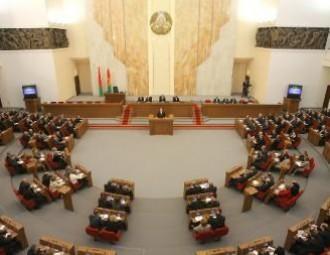Volha Smalianka: Hearings will be useful even if the legislation is not reformed

The proposal to have parliamentary hearings about the legislation that regulates the work of the non-governmental organizations is meant to make the state hear such organizations.
It was stated by Volha Smalianka, the director of the Legal Transformation Centre “Lawtrend”, in the talk with the EuroBelarus Information Service.
She believes that when the legislation about public associations is being developed it is extremely important to hear the opinions of every party; both the representatives of the state structures as well as the organizations that will receive this draft law. Thus, the expert of Lawtrend assumes that the best variant is the initiation to conduct parliamentary hearings. “During the hearings there is a possibility to hear the standpoints of the Ministry of Justice, parliamentarians and the non-governmental organizations themselves”, - she explained.
However, how real is the supposition that the state will welcome the initiatives of the civil society? Do NGOs have some further action plans?
“We hope that we will be finally heard and the hearings will be initiated. I think that it will be useful to express political stances of both the parties even if no immediate reforming takes place”, - Volha Smalianka said.
“There have always been further variants, - she continued. – Centre for Legal Transformation has already directed its suggestions for this draft law. But, unfortunately, no changes in legislation have been made so far. We have lots of mechanisms for now; but to make them work we should have the political will of the parties; from the side of the state as well”.
It is for stimulating the will of the state that the initiative of the appeal is aimed at, the representative of Lawtrend noted. “Belarus has never had the practice of conducting parliamentary hearings on this issue, and I think that we present the most effective variant”, - Volha Smalianka announced.
Let us recall that 25 organizations have directed an appeal to the Belarusan parliament and government that suggests to hold parliamentary hearings concerning the issue of improving the legislation about the non-governmental organizations.
The reason for such an appeal is the adoption of the draft law “On introducing amendments and additions to some Belarusan laws on the issues of the work of political parties and other public associations”.
As it is stated in the appeal, this draft has certain positive changes, but it doesn’t resolve the most important legislative problems that the organizations of the civil society face.
-
03.01
-
07.10
-
22.09
-
17.08
-
12.08
-
30.09



























